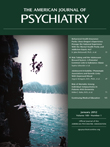Adolescent Irritability: Phenotypic Associations and Genetic Links With Depressed Mood
Abstract
Objective:
Irritability has been proposed to underlie the developmental link between oppositional problems and depression. Little is known, however, about the genetic and environmental influences on irritability and its overlap with depression. Drawing on the notion of “generalist genes” (genes of general effect that underlie phenotypic overlap between disorders), the authors test the hypothesis that the association between irritability and depression is accounted for by genetic factors.
Method:
Data from the G1219 study, a U.K. twin/sibling sample (N=2,651), were used in a cross-sectional and longitudinal design. The irritable and headstrong/hurtful dimensions of oppositional behavior were derived using factor analysis. Regression was used to estimate the association between depression and delinquency. Multivariate genetic analyses were used to estimate the genetic overlaps between the two components of oppositionality (irritability and headstrong/hurtful behaviors) and depression and delinquency.
Results:
Irritability showed a significantly stronger phenotypic relationship with depression than with delinquency, whereas headstrong/hurtful behaviors were more strongly related to delinquency than to depression. In multivariate genetic analyses, the genetic correlation between irritability and depression (rA=0.70, 95% CI=0.59–0.82) was significantly higher than that between irritability and delinquency (rA=0.57, 95% CI=0.45–0.69); conversely, the genetic correlation between headstrong/hurtful behaviors and delinquency (rA=0.80, 95% CI=0.72–0.86) was significantly higher than that between headstrong/hurtful behaviors and depression (rA=0.46, 95% CI=0.36–0.57). In longitudinal models, the phenotypic association between irritability at wave 2 and depression at wave 3 was accounted for by the genetic association between irritability and depression at wave 2.
Conclusions:
These findings are consistent with the theory that genes with general effects underlie the relationship between irritability and depression.



